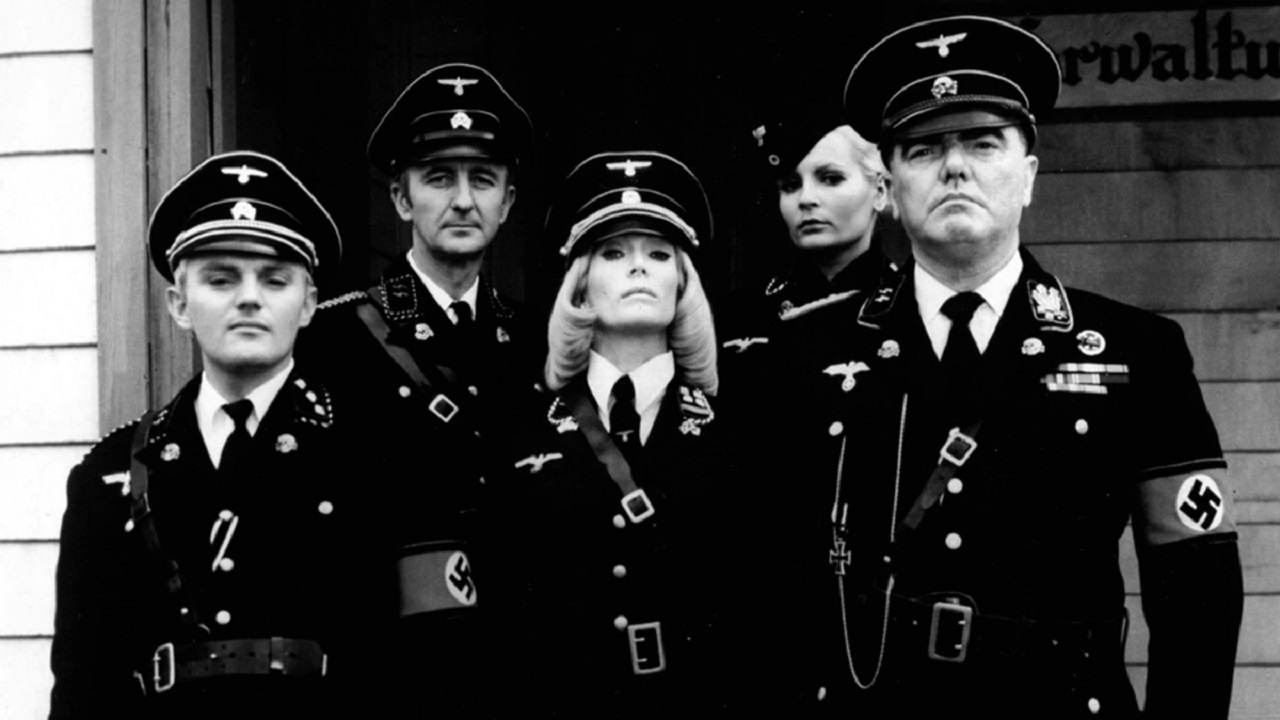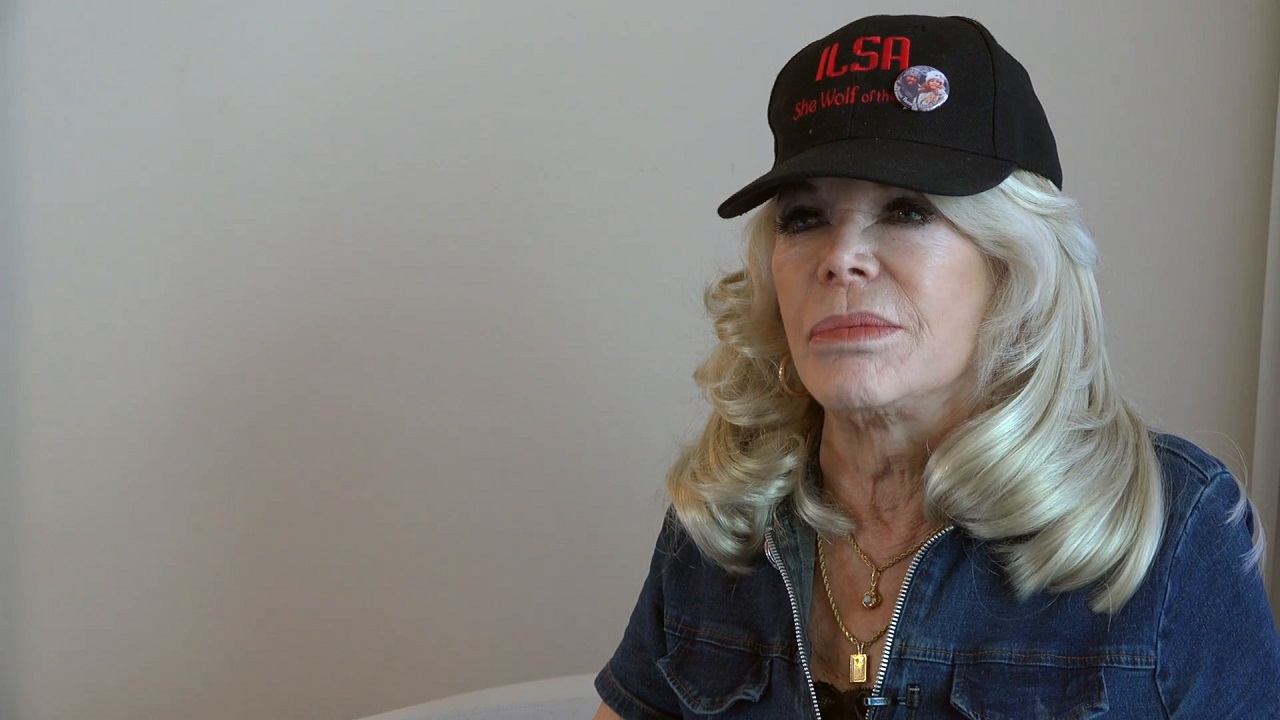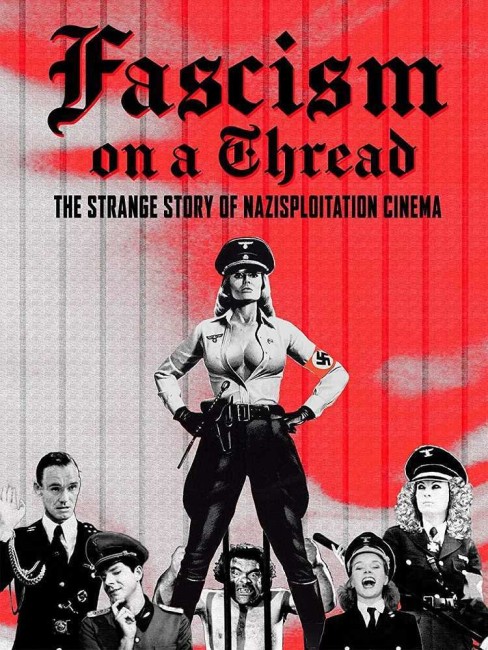UK. 2019.
Crew
Director – Naomi Holwill, Producers – Naomi Holwill & Calum Waddell. Production Company – High Rising Productions.
With
Allan Bryce, Mario Caiano, Liliana Cavani, Rino Di Silvestro, Sergio D’Offiizi, Sergio Garrone, Mike Hostench, Russ Hunter, Mikel J. Koven, Malisa Longo, John Martin, Howard Maurer, Italo Moscati, Kim Newman, Anthony Page, Giuliani Sorgini, Dyanne Thorne
Fascism on a Thread: The Strange Story of Nazisploitation is a Documentary devoted to the Nazisploitation phenomenon. Nazisploitation refers to a series of films that emerged in the 1970s, although the documentary traces the origins of the fad to earlier than that. These films take a setting of Nazi atrocities and concentration camps and depict the cruelties with luridly sadistic fascination along with plentiful sex scenes. The phenomenon ended around the 1980s.
Fascism on a Thread is directed by Naomi Holwill who has produced and edited a great many documentary shorts and full-length films for dvd extras principally in the horror field throughout the 2010s, mostly focused on 1970s/80s Euro horror. She branched out to direct several of these with The Life, Legend and Legacy of Donald P. Borchers (2016), Brain Food Analysing Late Day Fulci (2018), Me Me Lai Strikes Back (2018), The Prince of Plasma: The Gianetto De Rossi Story (2019), Prince: The Peach and Black Times (2019), All Hail the Hams: Breaking the Silence on a Comedy Classic (2020), The Emmanuelle Effect (2020), From Rollerball to Rome (2020), Jorge Grau: Catalonia’s Cult King (2020) and Marauders from the Mediterranean: The Macabre Magic of the Spanish Zombie Film (2022).
The interviewees range between several film academicians and critics, the most well-known of these being author/film critic Kim Newman, along with directors and occasional stars, cameraman and even a composer from some of the Italian Nazisploitation films. There is also an aged Dyanne Thorne, the star of the most famous Nazisploitation film Ilsa, She Wolf of the SS (1974), along with her husband, who is interviewed before her death in 2020.
The origins of the genre are traced to embryonic films such as Rome, Open City (1945), which features the torture of a priest by Nazis, to Lucino Visconti’s The Damned (1969) with its sexualisation of the cabaret performers of the era. This in turn led to the widely successful Cabaret (1972) and its fetishising of the drag performers and gay subculture of Berlin. This was later incorporated into the Nazisploitation film (even though, as is pointed out, such decadence sits at opposite remove from the moral disapprobation of the Nazis). The influence of tv’s Hogan’s Heroes (1965-71) is mentioned, although Anthony Page repeats the common misidentification that the series was set in a concentration camp – the series was set in a prisoner of war camp, which treated its inmates far more humanely than the Nazi concentration camps did.


And then of course there was the big success of The Night Porter (1974), which seems to have influenced more films in the genre with the exception of Ilsa. Praise is also given for the incredibly raw Salo or 120 Days of Sodom (1975), which depicted the depravities of the Italian fascists and served as a model for many of the Italian films that followed. Praise is also given for Salon Kitty (1976), an almost respectable erotic film set in a Nazi brothel. One of the critics pertinently notes that most of the films that followed tended to fall into being either Nazi brothel or Nazi experiments films.
The first Nazisploitation film proper is cited as being Love Camp 7 (1969), a softcore work with plentiful nudity and mild torture scenes, which interestingly enough was produced by Jewish exploitation producer David Friedman. The film that kicked the Nazisploitation genre into high gear and made it what it was was Ilsa, She Wolf of the SS. Everyone speaks with admiration for Dyanne Thorne’s fierce performance – she tells the amusing anecdote about how she turned up late to the audition from her day job as a chauffeur wearing peaked cap and knee-high boots and was instantly given the job over another actress that had been decided upon. People, including Thorne herself, discuss the sequels (which are technically not Nazisploitation films) and Ilsa’s seemingly miraculous survival despite being killed. Kim Newman points out the fact that Thorne looks almost the physical opposite of the character’s model, the far more matronly Ilse Koch, the wife of the commandant of Buchenwald.
Having charted the origins of the phenomenon, the latter half of the film spends its time discussing the individual merits of the assorted Nazisloitation films – ranging from their absurdities, depravities and points that they don’t deal with (few of the films actually depicted the Holocaust as such, perhaps considering the reality too horrific even for them). These aspects the film charts in such a detail as to provide a thorough coverage of the topic.


